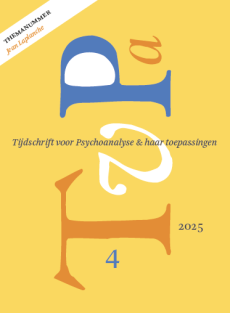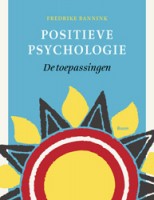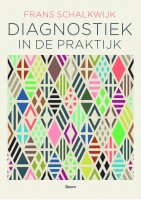Muziek en psychoanalyse, onderschatte thematiek
Summary
Music and psychoanalysis underestimated questions
Although psychoanalysis has established ongoing dialogues with literature, film and theatre, music has been somewhat neglected. Psychoanalytic approach to music is generally restricted by conscious or subconscious presuppositions about music as verbal communication and narrative form. For analysts, the functional and aesthetic characteristics of music, which are strictly related to periods of musical history, seem to be less obvious. Analysts often stick to anachronistic presumptions about music as a vehicle of emotions and psychological meanings. However, there are analogues between the representations of psychoanalysis, music and the mind that could be fruitfully explored. This article takes up the academic need for the integration of psychoanalysis, humanities and musicology.
Literatuur
- Baneke, J. (1992). Psychoanalyse en muziek. Amsterdam: Rodopi.
- Ehrenzweig, A. (1967). The hidden order of art A study in the psychology of artistic imagination. Londen: Weidenfeld and Nicolson.
- Ester, J. & Mulder, E. (red.) (1997). Fliessende Übergänge Historische und Theoretische Studien zu Musik und Literatur. Amsterdam / Atlanta: Rodopi.
- Chijs, A. van der (1923). An attempt to apply psychoanalysis to musical composition. International Journal for Psychoanalysis, 4, 379-380.
- De Kesel, M. (2004). Opera operanda Verslag van een psychoanalytisch symposium over opera. Tijdschrift voor Psychoanalyse, 10, 45-46.
- Freud, H.C. (1997). Frauenliebe und Leben. In J. Ester & E. Mulder (red.), Fliessende Übergänge Historische und theoretische Studien zu Musik und Literatur (p. 201-221). Amsterdam / Atlanta: Rodopi.
- Gay, P. (1985). Freud for historians. New York / Oxford: Oxford University Press.
- Gay, P. (1999). Mozart. New York: Viking / Penguin.
- Haesler, L. (1997). Zur musikalischen Struktur und psychischen Dynamik der Sprachvertonung bei Franz Schubert und Robert Schumann. In J. Ester & E. Mulder (red.), Fliessende Übergänge Historische und Theoretische Studien zu Musik und Literatur (p. 147-191). Amsterdam / Atlanta: Rodopi.
- Hildesheimer, W. (1977). Mozart. Frankfurt: Suhrkamp Verlag.
- Kohut, H. (1950). On the enjoyment of listening to music. In S. Feder, R. L. Karmel & G. H. Pollock (red.), Psychoanalytic explorations in music (p. 1-21). Madison CT: International Universities Press, 1990.
- Kroon, J. de (2005). Jouissance a cinque voci Muziek en het onmogelijke genieten. Tijdschrift voor Psychoanalyse, 10, 98-108.
- Langer, S. (1953). Feeling and form. New York: Charles Scribners Sons.
- Mulder, E. (1982). Muziek in spiegelbeeld; over muziekfilosofie en dieptepsychologie. Baarn: Ambo.
- Mulder, E. (1987. Freud en Orpheus Of hoe het woord de muziek verdrong. Utrecht: HES.
- Mulder, E. (1994). De zang van vogelvrouwen Psychoanalytische verkenningen in mythe en muziek. Leiden: Plantage.
- Mulder, E. (1999). Op zoek naar Eurydice; over psychoanalyse en kunst. Amsterdam: Boom.
- Nass, M. (1984). The development of creative imagination in composers. In S. Feder, R. L. Karmel & G. H. Pollock (red.), Psychoanalytic explorations in music (p. 267-287). Madison CT: International Universities Press, 1990.
- Spanjaard, J. (1980). Psychoanalyse en muziek. Inval, 1, 538. Amsterdam: Nederlandse Vereniging voor Psychoanalyse.
- Sterba, R. (1939). Toward the problem of the musical process. Psychoanalytical Review, 33, 470-478.
 © 2009-2026 Uitgeverij Boom Amsterdam
© 2009-2026 Uitgeverij Boom Amsterdam
ISSN 1382-516x
De artikelen uit de (online)tijdschriften van Uitgeverij Boom zijn auteursrechtelijk beschermd. U kunt er natuurlijk uit citeren (voorzien van een bronvermelding) maar voor reproductie in welke vorm dan ook moet toestemming aan de uitgever worden gevraagd:
Behoudens de in of krachtens de Auteurswet van 1912 gestelde uitzonderingen mag niets uit deze uitgave worden verveelvoudigd, opgeslagen in een geautomatiseerd gegevensbestand, of openbaar gemaakt, in enige vorm of op enige wijze, hetzij elektronisch, mechanisch door fotokopieën, opnamen of enig andere manier, zonder voorafgaande schriftelijke toestemming van de uitgever.
Voor zover het maken van kopieën uit deze uitgave is toegestaan op grond van artikelen 16h t/m 16m Auteurswet 1912 jo. Besluit van 27 november 2002, Stb 575, dient men de daarvoor wettelijk verschuldigde vergoeding te voldoen aan de Stichting Reprorecht te Hoofddorp (postbus 3060, 2130 KB, www.reprorecht.nl) of contact op te nemen met de uitgever voor het treffen van een rechtstreekse regeling in de zin van art. 16l, vijfde lid, Auteurswet 1912.
Voor het overnemen van gedeelte(n) uit deze uitgave in bloemlezingen, readers en andere compilatiewerken (artikel 16, Auteurswet 1912) kan men zich wenden tot de Stichting PRO (Stichting Publicatie- en Reproductierechten, postbus 3060, 2130 KB Hoofddorp, www.cedar.nl/pro).
No part of this book may be reproduced in any way whatsoever without the written permission of the publisher.
Nieuwsbrief Boom Psychologie
Meld u nu aan en ontvang maandelijks de Boom Psychologie nieuwsbrief met aantrekkelijke aanbiedingen en de nieuwe uitgaven.
Aanmelden


